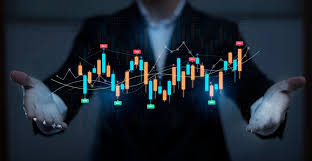
Forex trading, also known as foreign exchange trading, is the process of exchanging one currency for another with the intent to profit from fluctuations in exchange rates. For beginners, diving into the world of Forex can be both exciting and daunting. However, with the right guidance and resources, anyone can learn to trade effectively. This guide will cover the fundamental concepts, strategies, and tools necessary to get started, including the importance of selecting a reliable trading platform. Consider downloading a mobile application like forex trading beginner guide Trading App APK to facilitate your trading experience on the go.
Understanding Forex Trading
Forex trading takes place in the foreign exchange market, which is the largest and most liquid financial market in the world. Currencies are traded in pairs, such as EUR/USD (Euro/US Dollar) or GBP/JPY (British Pound/Japanese Yen). When you trade a currency pair, you are essentially speculating on the value of one currency relative to another.
How Does Forex Work?
Forex operates 24 hours a day, five days a week, providing ample opportunity for traders to engage in the market. The price of currency pairs is influenced by various factors, including economic data, political events, and market sentiment. Traders use a combination of technical and fundamental analysis to make their trading decisions.
Key Terminology in Forex Trading
- Currency Pair: The quotation of two different currencies, with one currency being quoted against the other.
- Pip: The smallest price movement in the forex market. For most currency pairs, it is equivalent to 0.0001.
- Leverage: A tool that allows traders to control a larger position than their initial investment. It can amplify gains but also increases potential losses.
- Spread: The difference between the buying price (ask) and the selling price (bid) of a currency pair.
Choosing a Forex Broker
Selecting the right forex broker is vital for your trading success. Here are some tips to help you choose a broker:
- Regulation: Ensure that the broker is regulated by a reputable financial authority.
- Trading Platform: Look for a user-friendly and reliable trading platform that offers necessary tools and features.
- Account Types: Consider the types of accounts offered, such as demo accounts for practicing without risk, and see which aligns with your trading goals.
- Customer Support: Good customer support can help resolve issues and answer questions when you need assistance.
Developing a Trading Plan
A well-defined trading plan is essential for successful trading. It should include your trading goals, risk tolerance, and rules for entering and exiting trades. Here are some key components of a trading plan:
- Goals: Define what you want to achieve with your trading.
- Risk Management: Set rules on how much of your capital you are willing to risk per trade.
- Trading Strategy: Choose a strategy that suits your trading style, whether it’s day trading, swing trading, or long-term investing.
- Review Process: Regularly evaluate your trading performance and adjust your plan as needed.

Currency Pair Analysis
Technical Analysis
Technical analysis involves analyzing historical price data to forecast future price movements. Traders use various tools, such as charts and indicators, to identify trends and potential entry and exit points. Common technical indicators include:
- Moving Averages
- Relative Strength Index (RSI)
- Bollinger Bands
Fundamental Analysis
Fundamental analysis entails evaluating the economic, social, and political factors that can influence currency values. Important factors to consider include:
- Interest Rates: Changes in interest rates can significantly impact currency values.
- Economic Data: Reports on GDP, employment, and inflation can provide insights into a country’s economic health.
- Political Events: Political stability or unrest can lead to currency volatility.
Practicing with a Demo Account
Before risking real money, it is advisable to practice trading with a demo account. Most brokers offer this option, allowing you to trade with virtual currency in real market conditions. This helps you familiarize yourself with the trading platform, test your trading strategies, and gain experience without financial risk.
Start Trading
Once you feel confident in your trading abilities and have developed a solid trading plan, it’s time to start trading with real money. Begin with a small investment to minimize risk while you gain experience. Continuously educate yourself and keep track of market trends and economic news.
Conclusion
Forex trading can be a rewarding venture if approached with the right mindset and strategies. Keep in mind that it is essential to continually educate yourself and to practice sound money management. As you grow more adept at analyzing the market and executing trades, you’ll be able to take advantage of the opportunities that come your way. With dedication and a commitment to learning, you can develop the skills to navigate the dynamic world of forex trading successfully.

